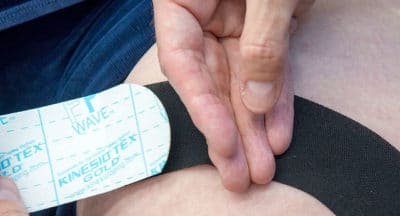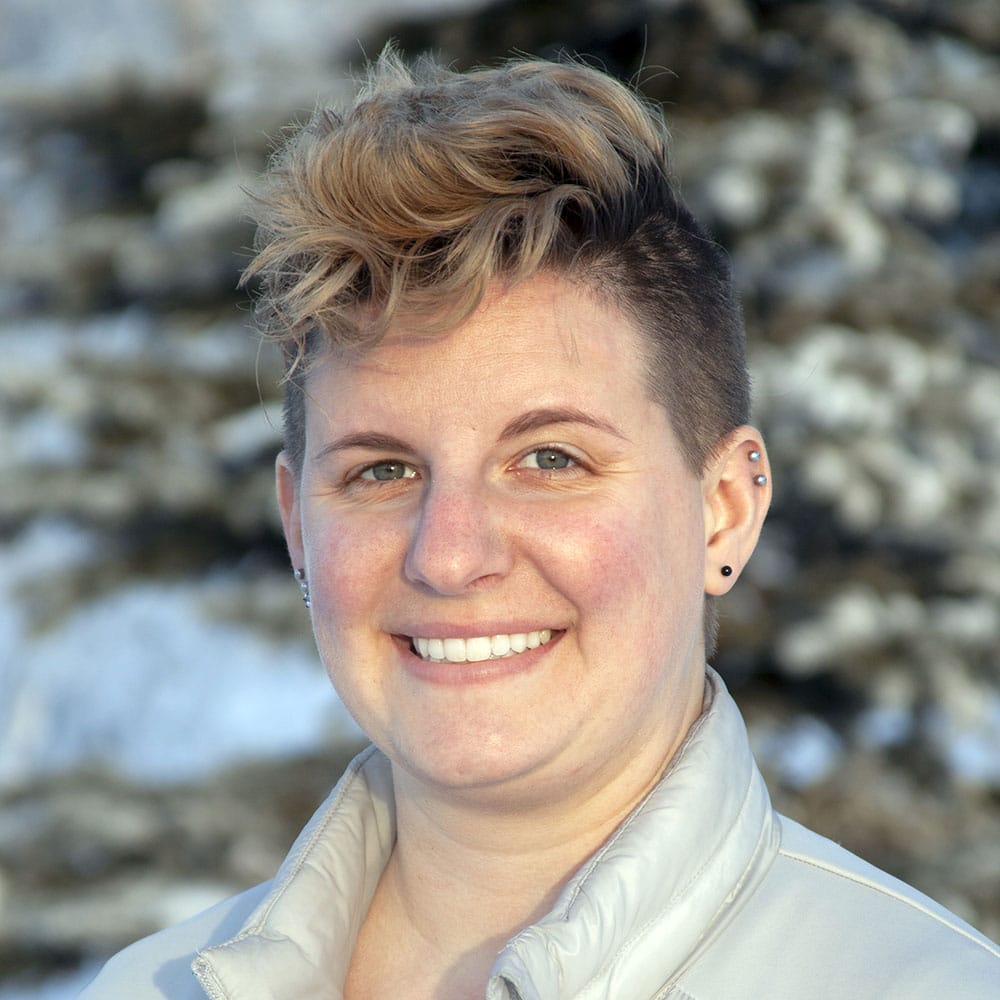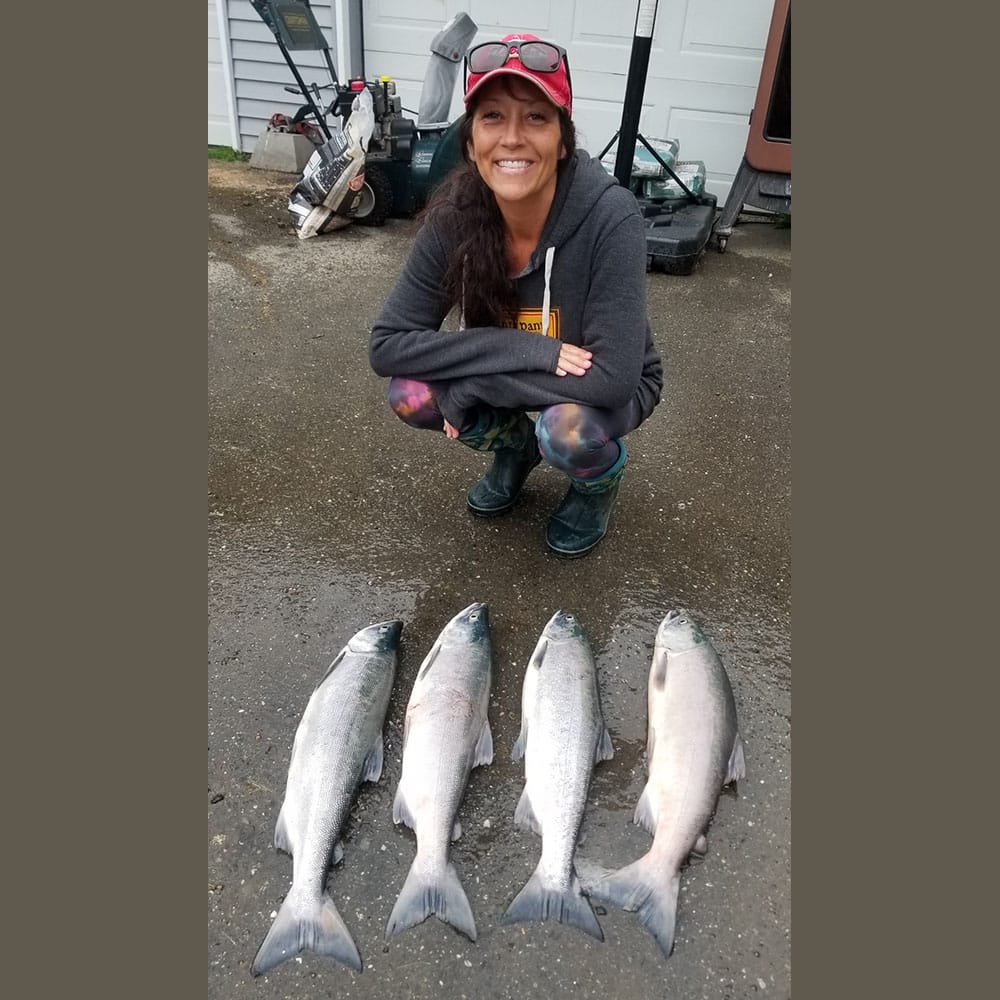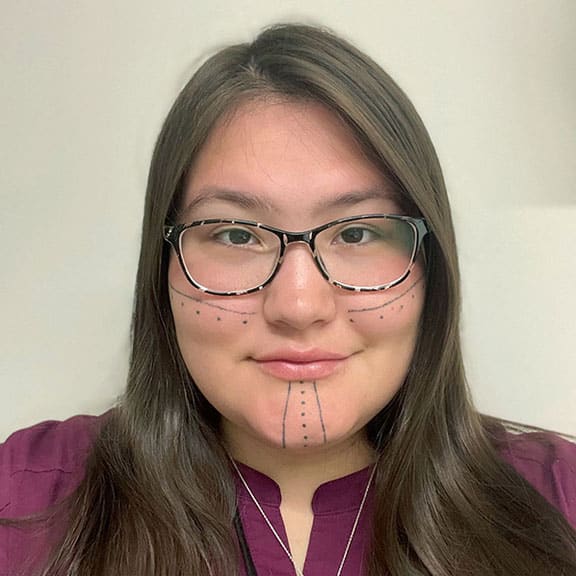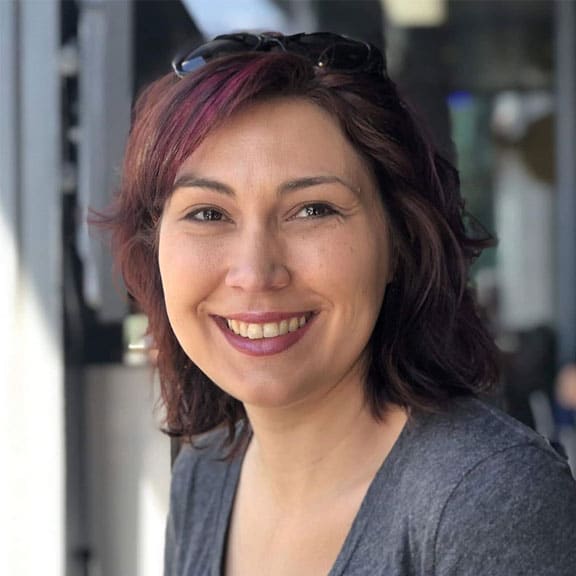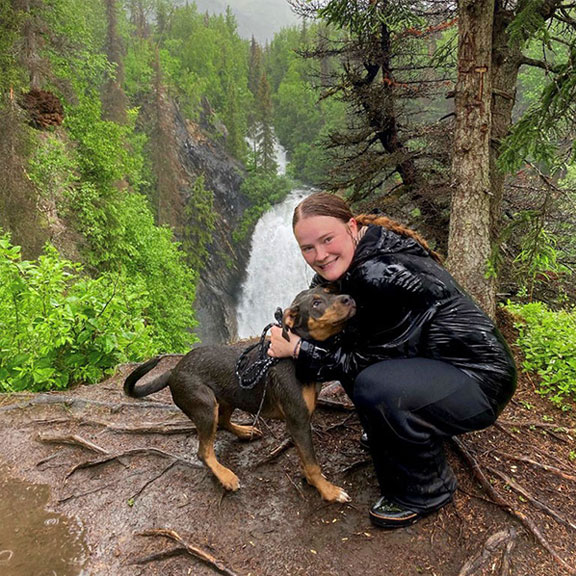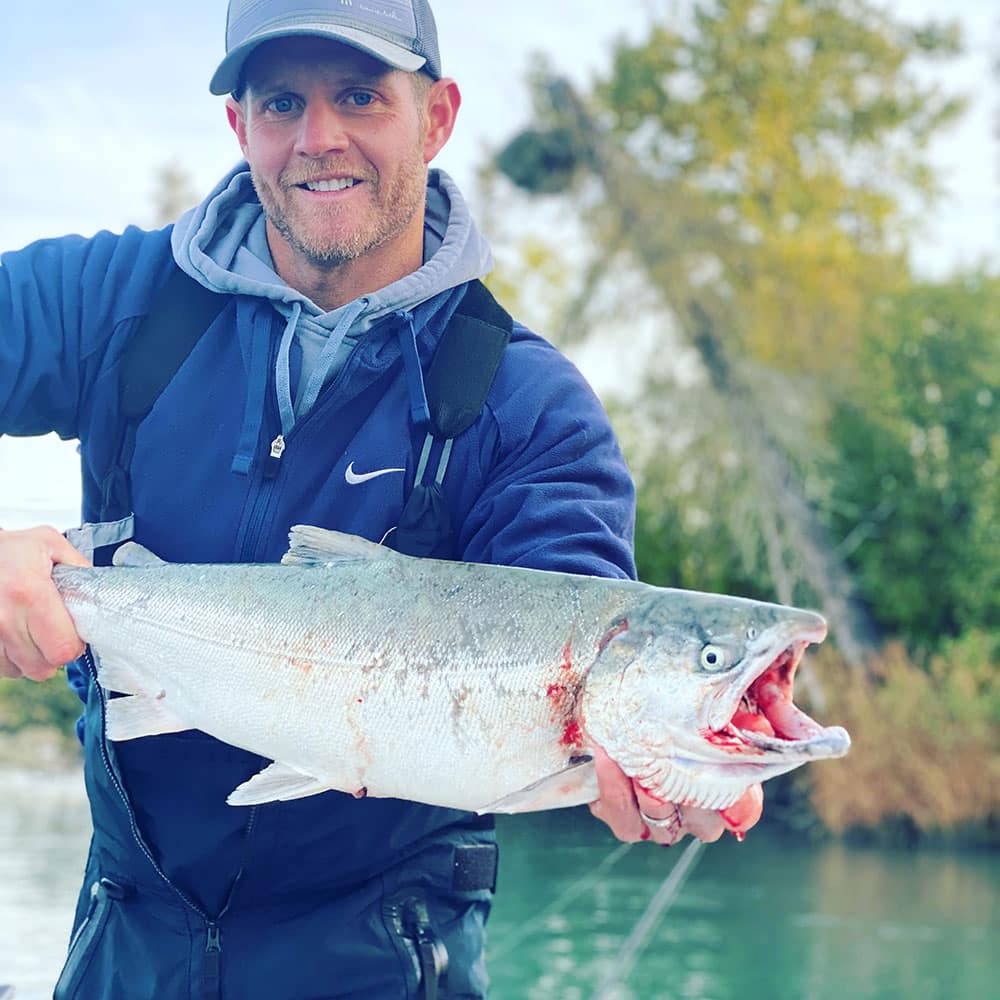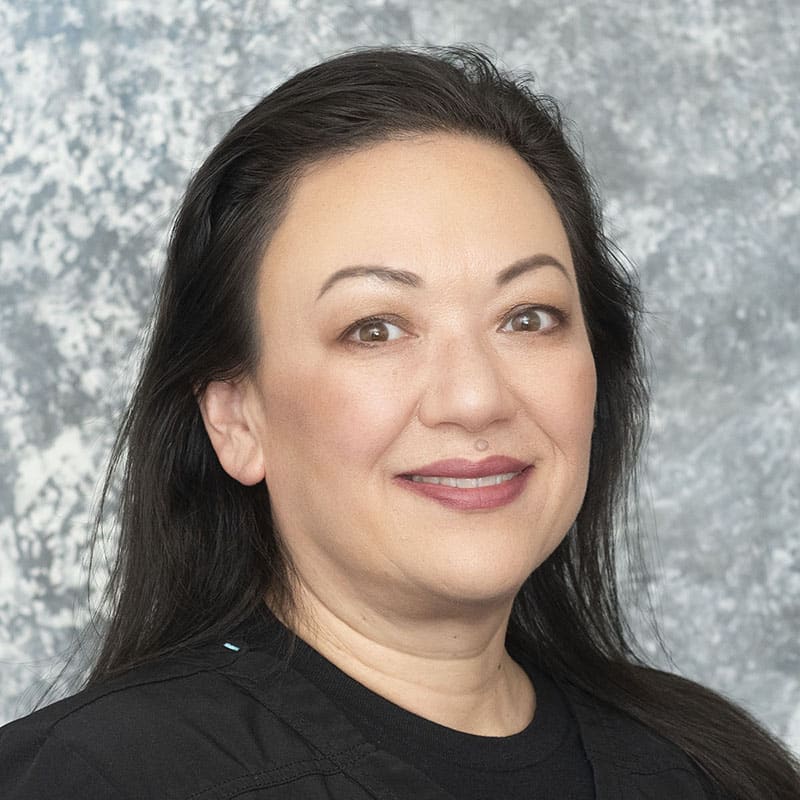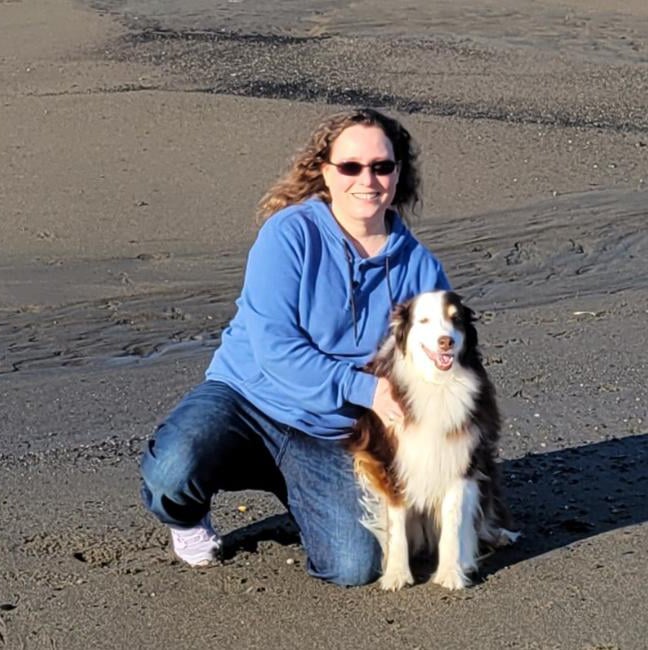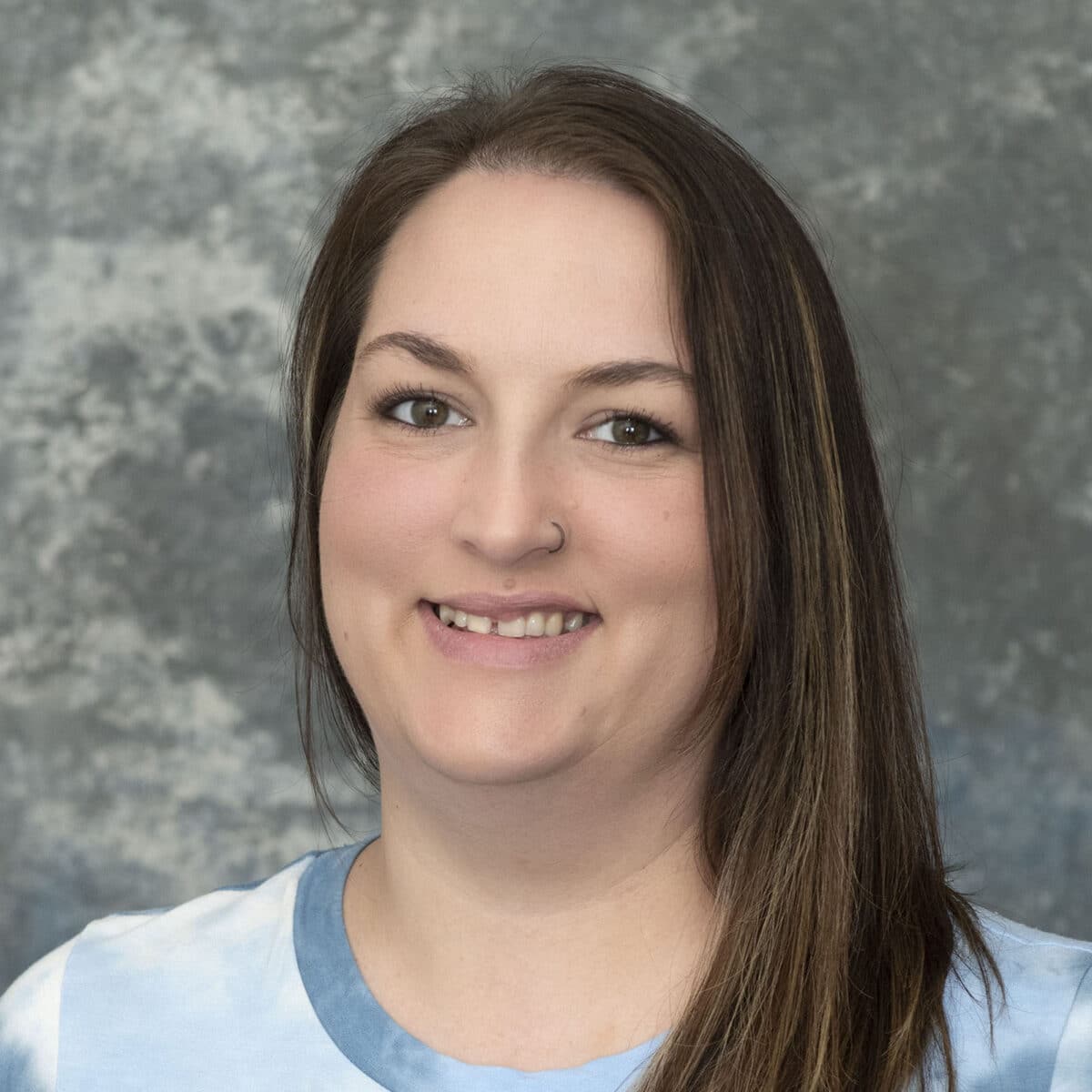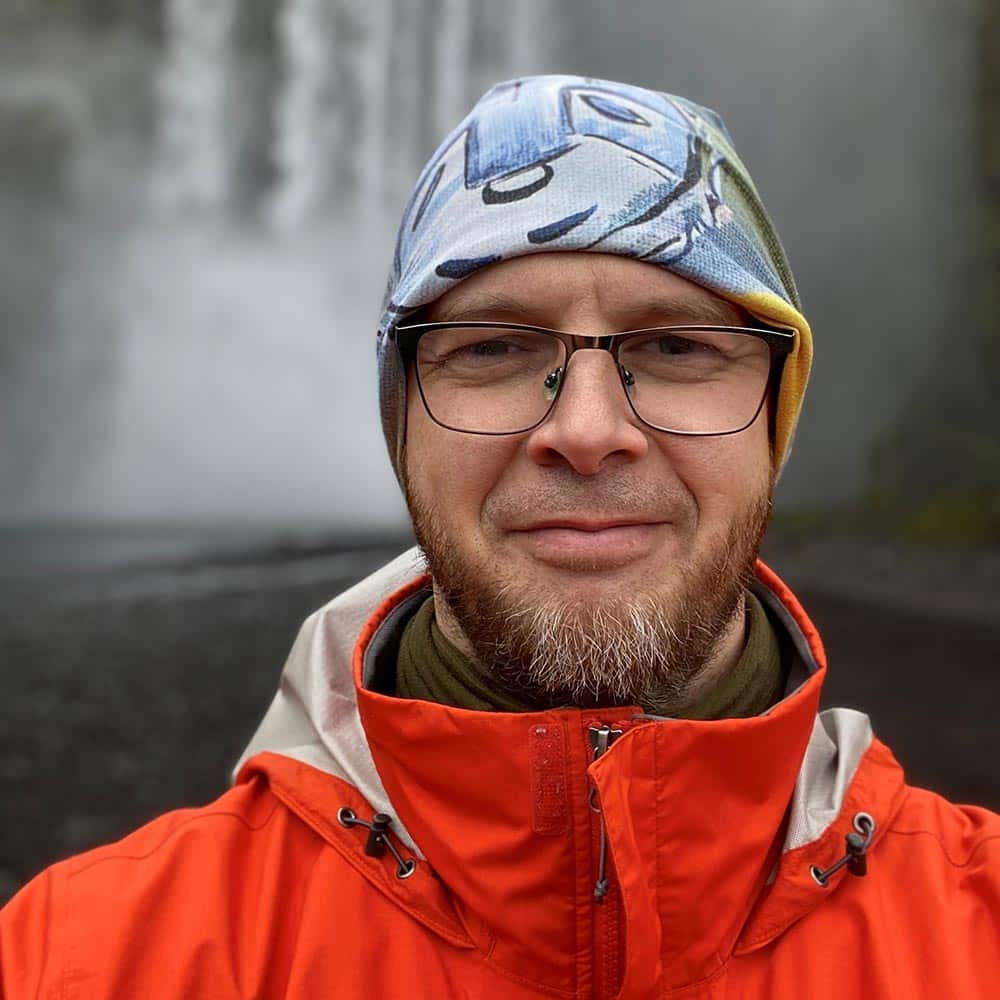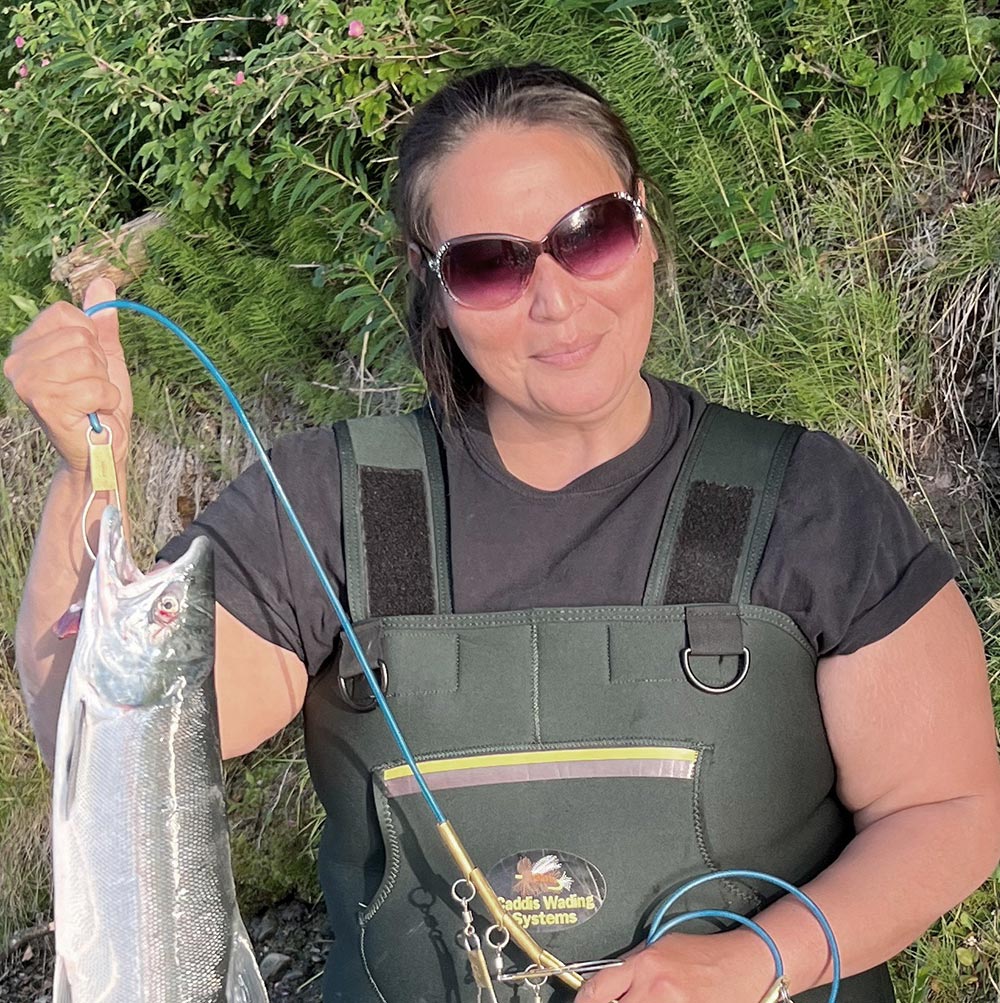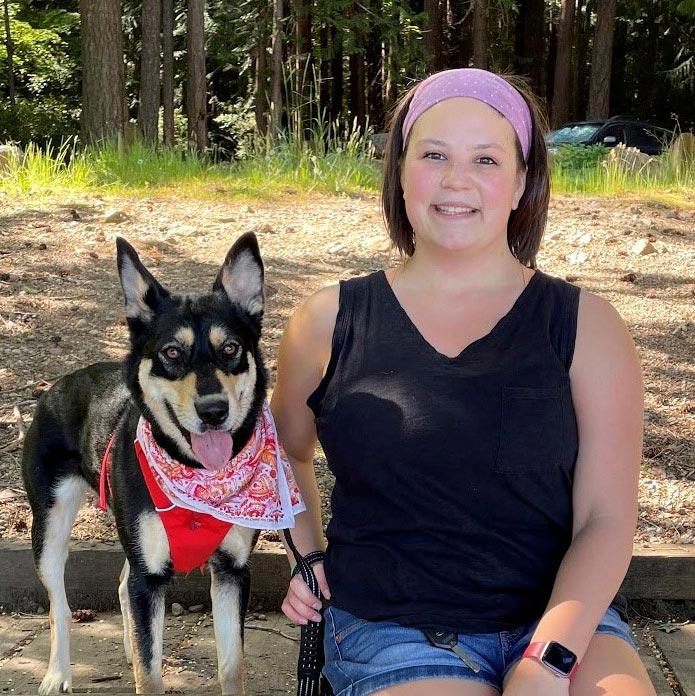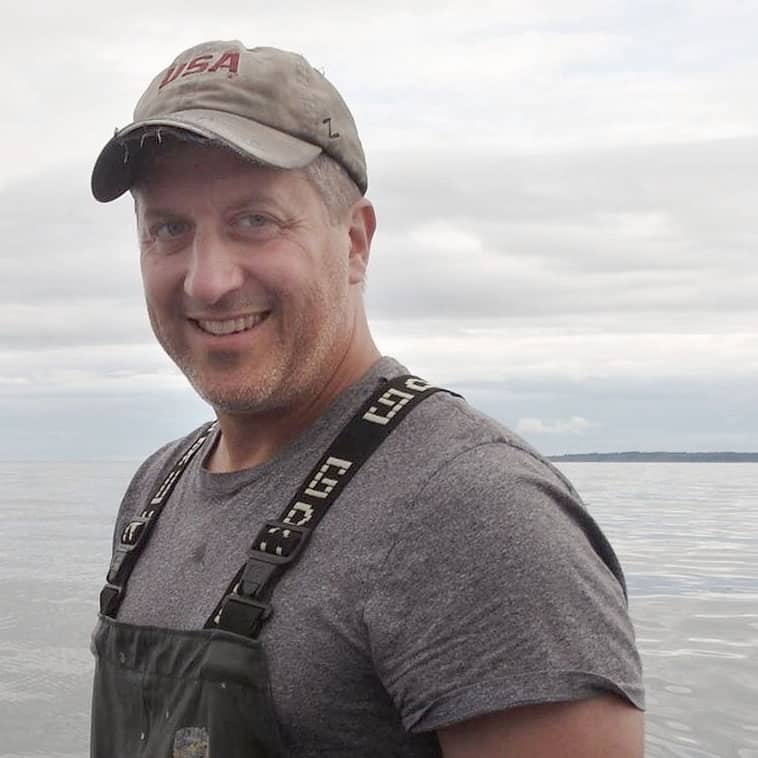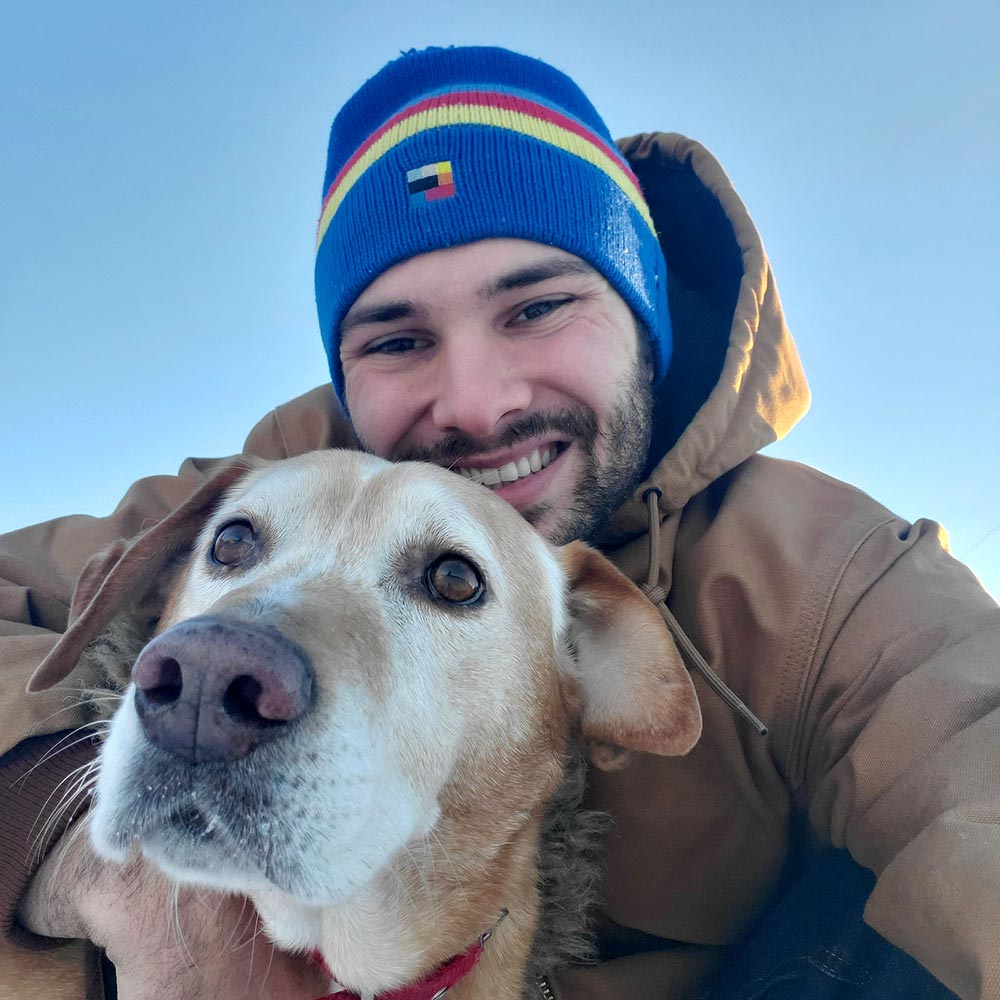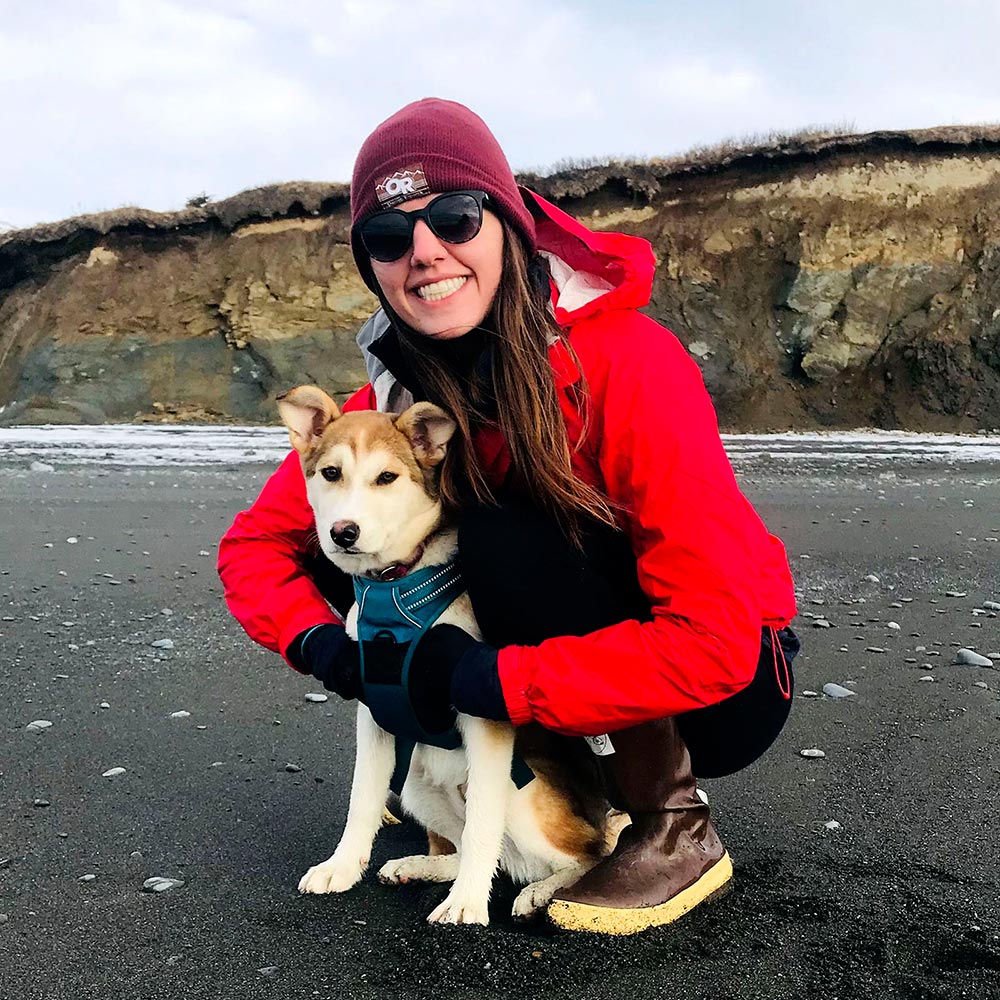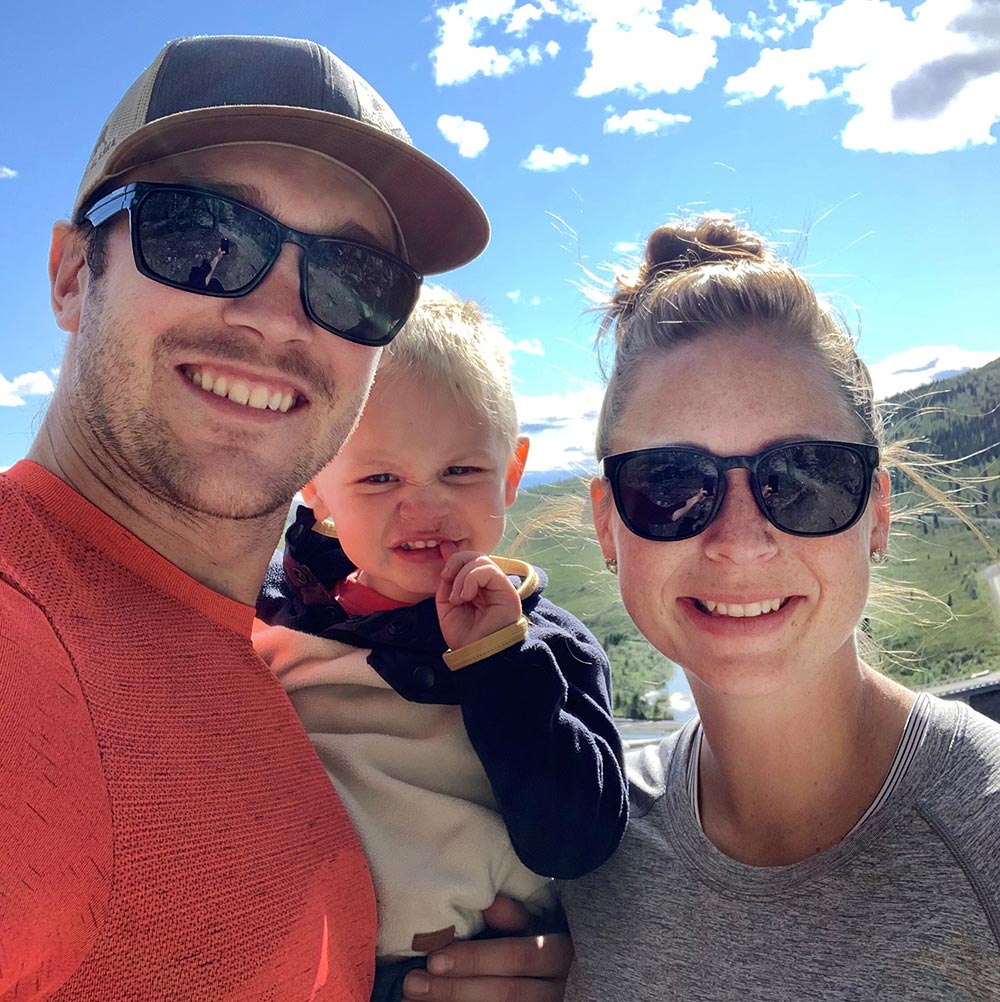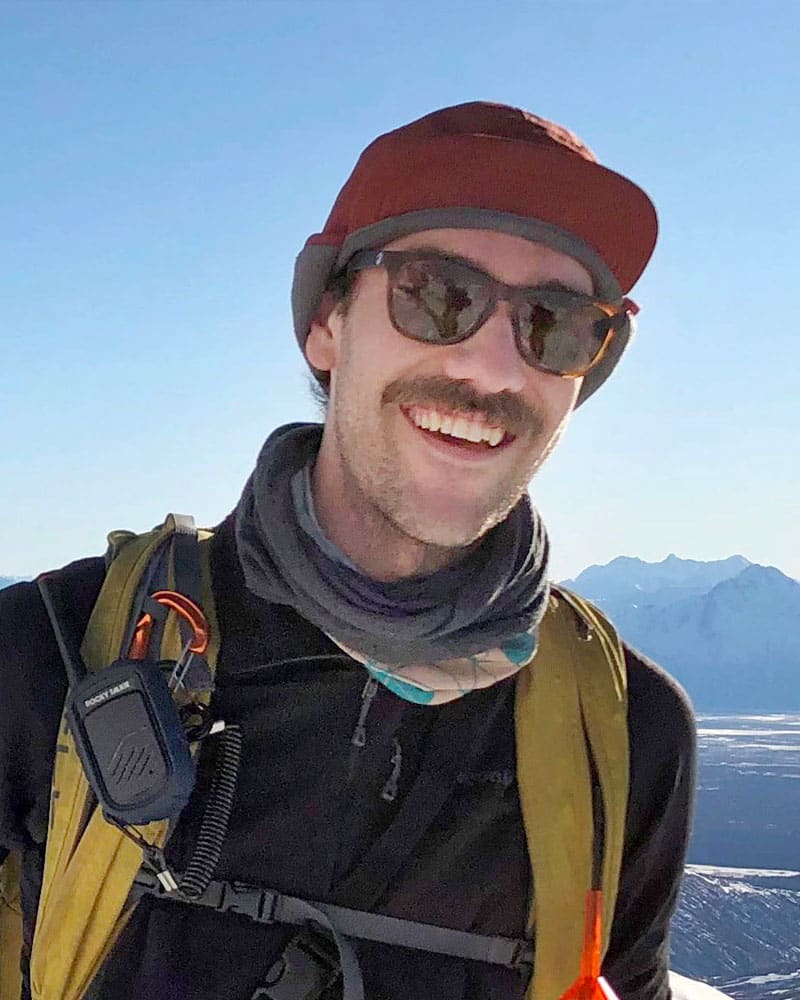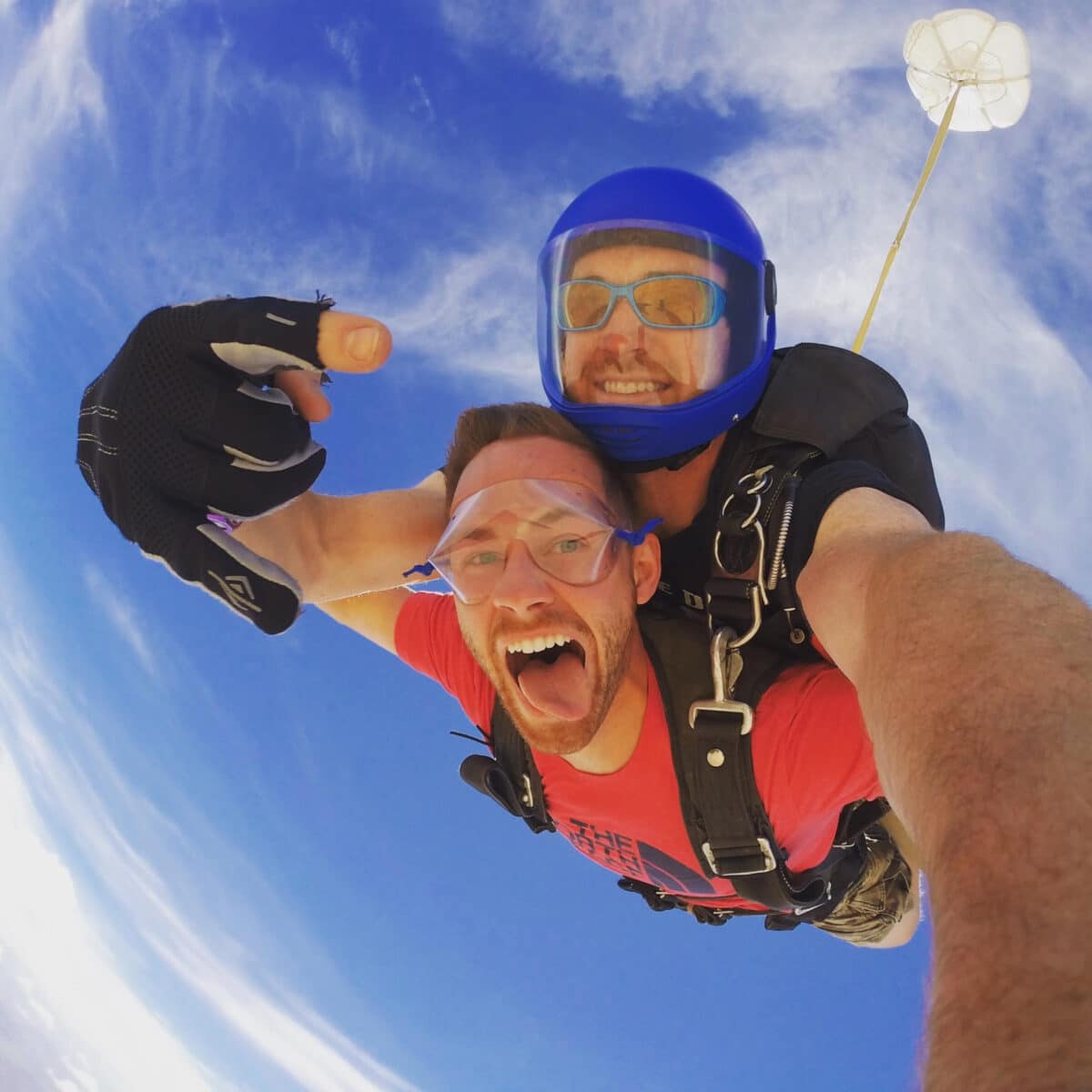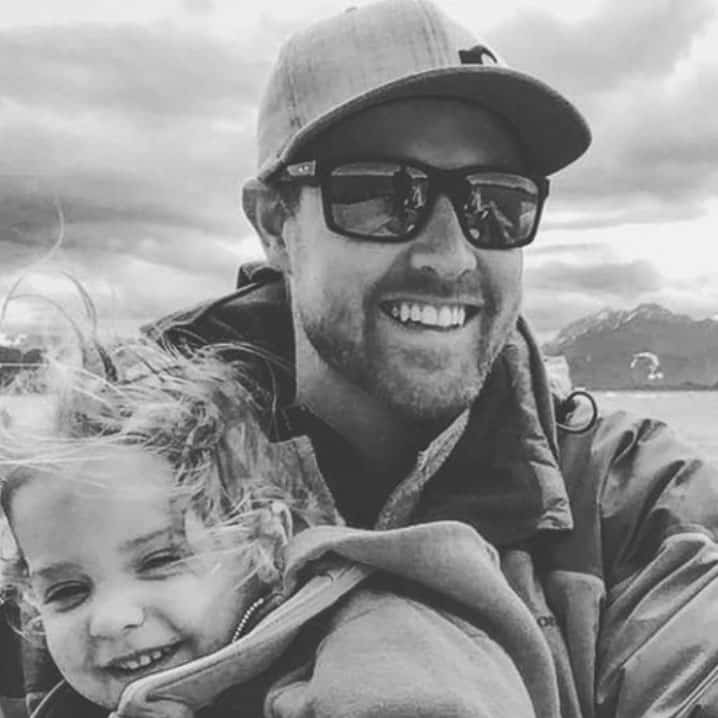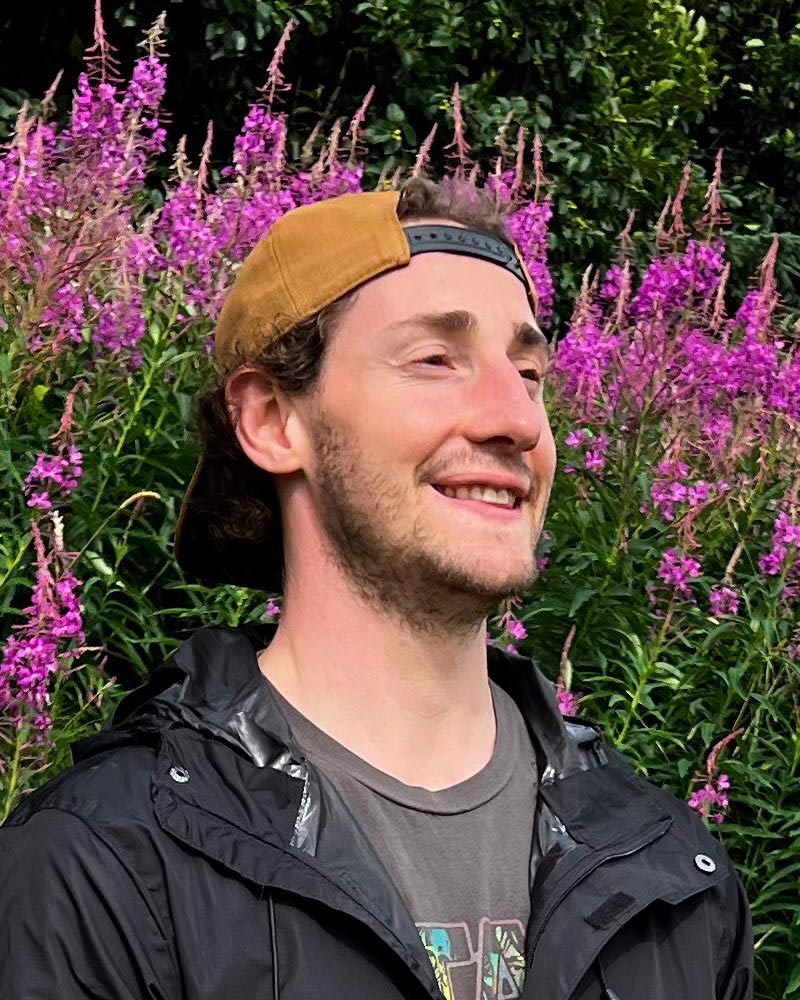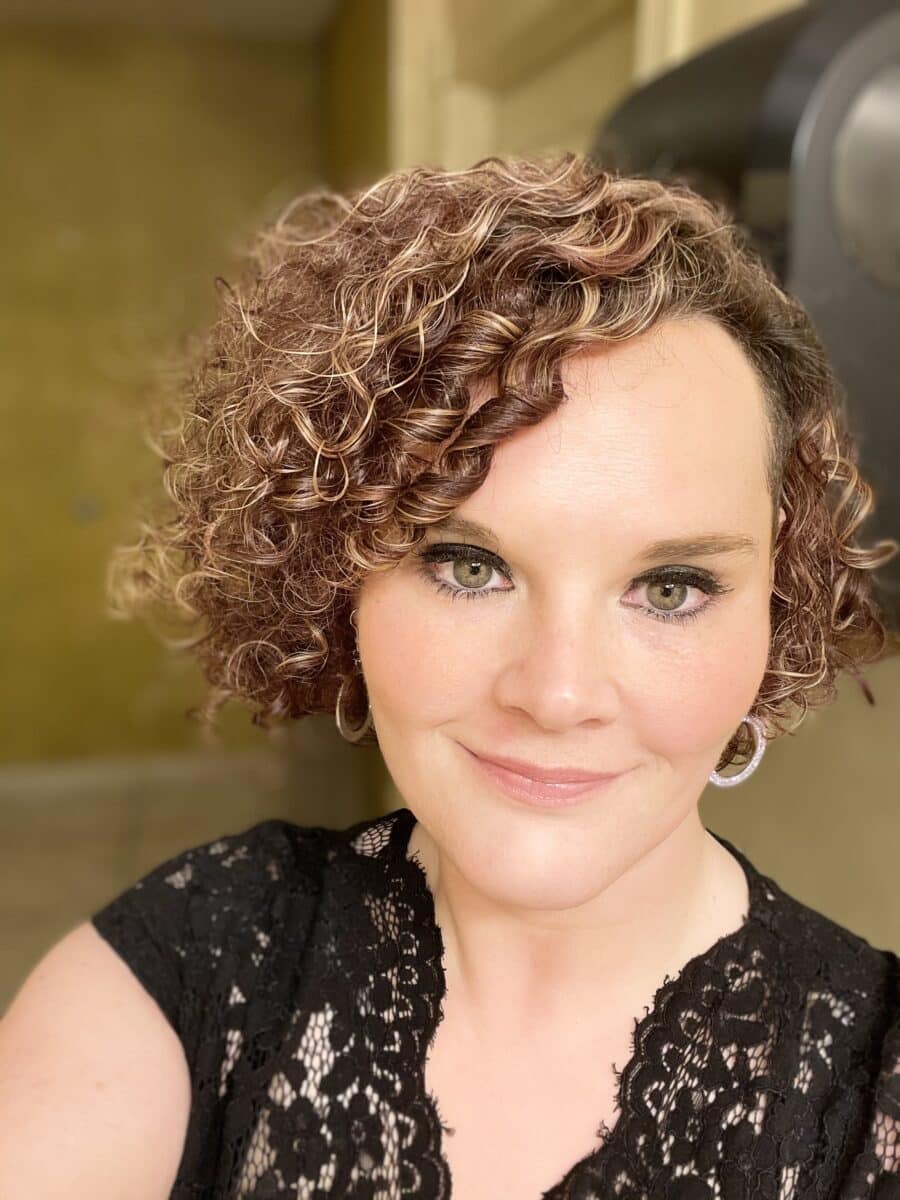Dena’ina Wellness Center uses special tape to ease pain, increase mobility
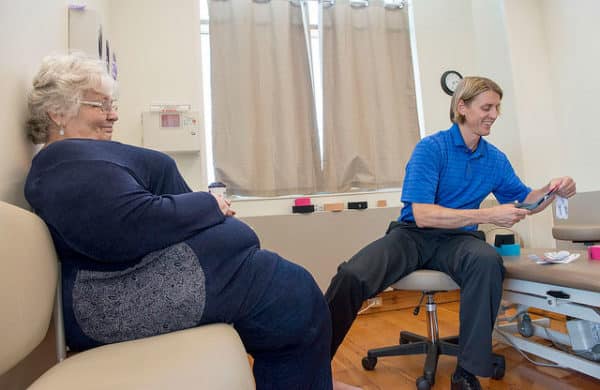
Alexandra “Sasha” Lindgren visits with Physical Therapist Paul Carlson as he affixes strips of Kinesio tape to her left leg at the Dena’ina Wellness Center. Lindgren said the tape has helped her move without pain.
When Alexandra “Sasha” Lindgren went to the hospital because of lower-body pain so severe she couldn’t walk, she faced the possibility of needing a wheelchair.
A torn left meniscus and lymphedema growth under the same knee, plus anterior cruciate ligament (ACL) issues, had left her nearly immobilized.
Compounding those difficulties, Lindgren admits she is overweight.
“You can’t lose weight if you can’t exercise, and you can’t exercise if you can’t walk,” said Lindgren, a tribal Elder.
But today Lindgren is upright, mobile and – compared to that day in the hospital – feeling much better.
And she attributes the turnaround to something simple.
Kinesio tape.
Staff members at the Dena’ina Wellness Center use the tape to help un’ina – those who come to us –gain strength, increase mobility, reduce pain and swelling, and more. Lindgren was introduced to the tape in December after Paul Carlson, physical therapist at the center, applied it to the problem areas on her body.
It didn’t take long for Lindgren, a cancer survivor, to see results.
“It’s just been really good for me,” she said.
The tape is made of cotton and medical-grade adhesive. It is light, stretchable and waterproof, allowing those who use it to shower, bathe and swim. It is applied over and around areas of discomfort, providing support while protecting muscles and joints.
Carlson recommends getting re-taped about every three to five days. Taking breaks between tapings can be beneficial as well.
What makes the tape appealing to many people, Lindgren included, is that it’s comfortable. Unlike traditional athletic tape, which is rigid and designed to be tightly wrapped and restrict movement, Kinesio tape allows range of motion to the applied areas.
“It allows you normal movement with protection, which is different than being strapped in and immobilized,” Carlson said. “What we are trying to do is help people return to function and heal and be able to move around in their real life because that’s what they need.”
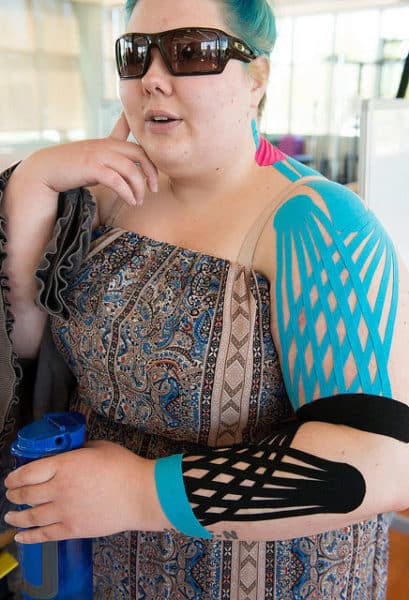
Kendra Ahlers talks about how Kinesio tape is helping her recover from burns to one side of her body. She said that the tape has helped relieve pain that has affected her for about two years.
Some people’s skin may react poorly to the tape, Carlson added, in which case they should gently take it off. But for Lindgren, the benefits have been profound.
She estimated that, on any given day, she walks five to six times more than she did prior to using the tape. And now her shoes are two sizes too big because the swelling in her feet has substantially subsided.
Although she occasionally takes Tylenol for pain relief, Lindgren credits the tape for giving her an alternative to prescribed main medication.
“I would be sitting here getting fatter, older and hazier because I’d just be taking pain pills,” she said.
Carlson said some staff members in the primary care area are trained to use the tape as well, supporting the tribe’s integrated and holistic approach to care.
The tribe also recently hosted a two-day workshop for Dena’ina Wellness staff and members of the surrounding medical community on how to use the tape. Similar sessions will be planned so coaches, parents and community members can learn how to appropriately use the tape.
In the meantime, Carlson looks forward to utilizing it to help un’ina on their path to wellness.
“Get stronger, get healthier, lose weight – those are all thing we are trying to help people with,” Carlson said.

